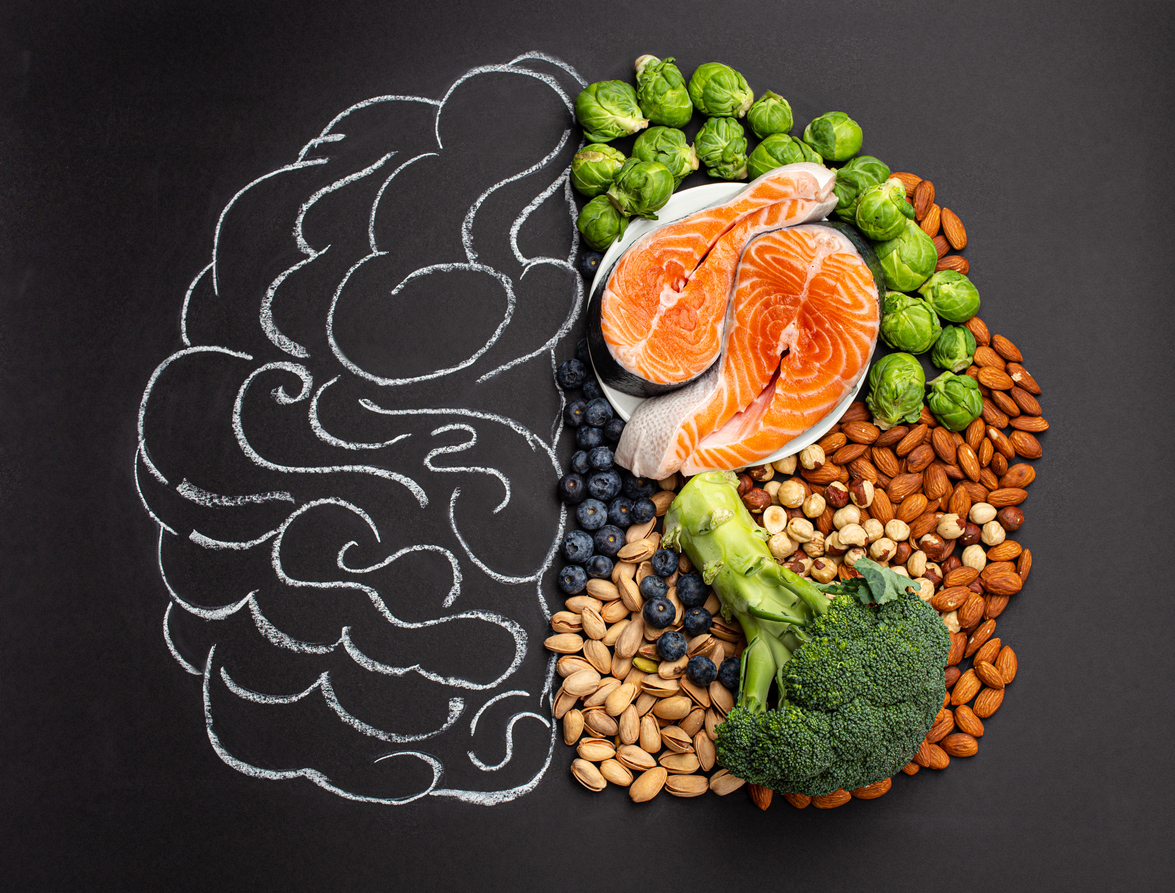You are what you eat: the connection between diet and mental health
Supporting your mental health may include therapy, wellness checks, managing chronic conditions, and prescription medication. But diet and nutrition also play a big part in one’s emotional wellness. What you eat can be significant for creating a ripple effect that can help you lower stress, deepen sleep, and feel calmer.
The promise of diet as a mental health tool is so strong that a new, rapidly emerging field has been created called "nutritional psychiatry," according to a 2017 editorial in the Proceedings of the Nutrition Society. Those authors point out that, increasingly, research is finding links between a highly-processed diet and the risk for depression and anxiety.
Why the connection? Here are some factors why a healthy diet could lead to improved mental health:
- Lower inflammation: A diet that's high in vegetables, fruits, whole grains, nuts, seeds, and lean protein has been shown to lower inflammation. Not only does that decrease health risks in general, such as cardiovascular disease, but research suggests it also reduces the likelihood of developing depression over time.
- More consumption of vitamins, minerals, and fatty acids: With the adoption of a diet that's less reliant on highly processed foods, you tend to get a higher amount of vitamins and minerals, such as folic acid and magnesium, as well as fatty acids found in foods like fish. Research suggests the dietary intake of these compounds is linked to lower depression and can even prevent the recurrence of depression for those who've had the condition in the past.
- Better habit stacking: When you change one habit toward improved health, it's easier to keep building on that progress. A diet that makes you feel more balanced and energetic could lead to exercising more often, for example, as well as sticking to a sleep routine that reduces or eliminates sleep disruptions. Maybe you'll feel inspired to socialize more, start a gratitude journal, learn new skills, go hiking, drink more water, or quit smoking. Although each of these might feel minor on its own, research suggests lifestyle changes like these can be powerful for your mental health, and they keep building on each other over time.
- Gut-brain power: An unhealthy diet negatively affects the beneficial bacteria in the gut. That's important when it comes to brain function, according to the American Psychological Association, which notes that your gut function influences brain chemistry, including pain perception, stress response, and emotions.
Your gut is like a second brain
The connection between diet and emotions arises from the close relationship between the brain and the gastrointestinal tract, often known as “the second brain.” The gastrointestinal tract consists of billions of bacteria that largely indulge in the production of neurotransmitters in the brain, chemical substances that carry messages from the gut to the brain. Consuming processed food items and sugary products might cause a temporary spike in “feel good" hormones, but it tends to feed “bad” bacteria in the gut, which can lead to inflammation and a bad mood.
The chemicals created by food may also affect your mood. When you consume nutritious food that is high in vitamins, minerals, and antioxidants, it can help protect your brain against oxidative stress, which helps maintain a positive mood.
Incorporate essential nutrients into your diet
The six most important nutrients are carbohydrates, protein, fats, vitamins and minerals, and water. When equipped with adequate amounts of all the right nutrients, our energy, mood, and overall well-being improve. To help your brain function properly, eat a variety of foods that are rich in essential nutrients, including:
- Vitamin C: citrus fruits, leafy green vegetables, and other fruits and vegetables
- Vitamin D: salmon, cod, shrimp, eggs, fortified milk, juice, and cereal products
- B vitamins: red meat, fish, eggs, dairy products, whole grains, and leafy green vegetables
- Magnesium, Selenium, and Zinc: nuts, seeds, whole grains, green vegetables, and fish
- Complex carbohydrates: whole grain breads and cereals, brown rice, quinoa, millet, legumes, and starchy vegetables, such as potatoes, corn, peas, and winter squash
- Tryptophan: lean red meat, poultry, eggs, and beans
- Phenylalanine: lean red meat, chicken, eggs, dairy products, soybeans, and seeds
- Omega-3 fatty acids: salmon, trout, tuna, beans, walnuts, broccoli, cauliflower, spinach, cantaloupe, chia/hemp seeds, and canola/flax seed oil
- Omega-6 fatty acids: poultry, eggs, grains, and vegetable oils
.png?width=400&height=400&name=Alyssa_posts%20wrapped%20in%20blog%20(9).png) Research has also shown that sticking to a healthy diet and making sure that you exercise regularly can help manage depression symptoms. It may take days or weeks before you start to feel the mood-boosting effects of a better diet, but the healthy choices you make each day build on each other. In time, you’ll see positive results in both your mind and body.
Research has also shown that sticking to a healthy diet and making sure that you exercise regularly can help manage depression symptoms. It may take days or weeks before you start to feel the mood-boosting effects of a better diet, but the healthy choices you make each day build on each other. In time, you’ll see positive results in both your mind and body.
If you want to make the change to eating healthier but are not sure where to start, talk to your healthcare provider. If you're a member of Mass General Brigham Health Plan, you can also sign up for Healthier You, a 1-year program that offers personalized health coaching via phone and text. We designed this program to support individuals that are looking to lose weight, eat more healthfully, increase physical activity, and reduce the risk of conditions such as diabetes and heart disease.
To register, members can email HealthandWellness@mgb.org or contact Health Coach Lisa Perea by phone at 857-282-3149.

.png?width=400&height=400&name=Copy%20of%20IG%20List%20of%205%20Items%20(2).png)